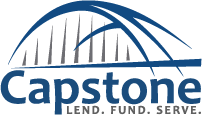How Much Does it Cost to Get a Bridge / Hard Money Loan?
Hard money and bridge loans offer many advantages, but they also come with costs. Learn more about the costs, and how they affect your bottom line.
When you borrow money, you expect to pay interest along with repaying the principal. This is how lenders make money and stay in business. There are also other fees and costs involved in the lending process. It is important to know how much it will cost, in total, to take out a loan. Hard money and bridge loans offer many advantages over more traditional types of loans, but these advantages can come at a cost, including higher interest rates. Capstone Capital Partners does not charge any upfront fees. You only pay when your loan closes. Read on to learn more about the types of expenses you might expect in a hard money or bridge loan.
Photo by Eduardo Soares on Unsplash
What are some fees commonly associated with hard money and bridge loans?
The following are two fees that commonly appear at hard money and bridge loan closings:
Origination fee: A fee, usually calculated as a percentage of the loan amount, paid to the lender to cover the costs that went into making the loan.
Title fee: A fee paid to a title company or attorney to search the public property records for liens, easements, defects, and other potential problems. This can also refer to the title insurance premium, which will cover many types of title disputes should they arise.
The amount of these fees that a borrower might pay can vary among lenders. Capstone Capital Partners typically charges an origination fee of 3-4% of the loan amount, also known as 3 to 4 origination points. We usually charge a title fee of 1% of the loan amount.
Photo by Point3D Commercial Imaging Ltd. on Unsplash
What costs will a borrower incur when taking out a hard money or bridge loan?
It is difficult, if not impossible, to give an average cost for a hard money or bridge loan. There are simply too many different kinds of loans in a wide range of circumstances. What we can do, however, is present a hypothetical loan closing and show the costs that a borrower might incur in a few common scenarios.
Suppose a borrower is purchasing a multifamily property for $7 million. This is a large transaction, so it will require a large loan and incur large costs. It will still leave room for big profits.
| Purchase price | $7,000,000 |
| Loan amount, assuming a 70% loan-to-value ratio | $4,900,000 |
| Down payment | ($2,100,000) |
| Origination fee (3 points) | ($63,000) |
| Title fee (1%) | ($21,000) |
| Loan term (length) | 24 months (2 years) |
| Total interest paid (11%) | ($581,082) |
| TOTAL EXPENSES RELATED TO PURCHASE | ($2,765,082) |
| Sale of property (after-repair value) | $10,000,000 |
| Realtor fee (6%) | ($600,000) |
| Loan repayment | ($4,900,000) |
| Profit | $1,734,918 |
Image by Paul Brennan from Pixabay
Now let’s suppose that a borrower is buying a house for a fix-and-flip project. This is a much smaller transaction. The amount of the loan is similar to a residential mortgage. The main differences are the much shorter loan term and the higher interest rate. If the property has a good after-repair value, though, it will be worth it.
| Purchase price | $400,000 |
| Loan amount, assuming a 70% loan-to-value ratio | $280,000 |
| Down payment | ($120,000) |
| Origination fee (3 points) | ($8,400) |
| Title fee (1%) | ($2,800) |
| Loan term (length) | 24 months (2 years) |
| Total interest paid (11%) | ($33,205) |
| TOTAL EXPENSES RELATED TO PURCHASE | ($164,405) |
| Sale of property (after-repair value) | $800,000 |
| Realtor fee (6%) | ($48,000) |
| Loan repayment | ($280,000) |
| Profit | $307,595 |
Learn more about the benefits of hard money and bridge loans
Capstone Capital Partners’ hard money lenders provide many loan options to real estate investors across Texas. We can evaluate your project and help you obtain the funding you need. Applying is easy, so contact us today to get started on a free pre-approval.



